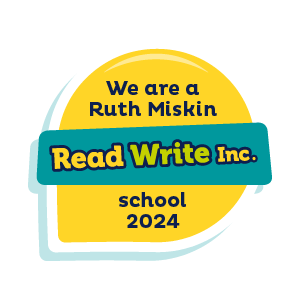WRITING

Click HERE to download a booking form or email admin@catherine-inf.leicester.sch.uk for enquiries.
AIMS
- To develop confident and independent writers, who communicate their ideas effectively.
- To support pupils to adapt their use of language in order to communicate for a range of purposes and audiences.
- To encourage a love of writing, by developing vocabulary and understanding of grammar to further their learning and ability to communicate.
- To encourage pupils to take ownership of their learning, by planning, revising and reflecting on their writing to ensure it is coherent and meets its purpose.
By the end of EYFS, pupils will:
Be able to write recognisable letters, most of which are correctly formed. They will be able to spell words by identifying sounds in them and representing the sounds with a letter or letters. It is expected that they will also write simple phrases and sentences that can be read by others. Pupils will show good control and co-ordination in their small movements. They will handle equipment and tools effectively, including pencils for writing.
By the end of Key Stage 1, pupils will:
Be able to write narratives, both real and fictional. Pupils will write using past and present tense mostly correctly and consistently. Pupils will demarcate sentences using capital letters, full stops and question marks most accurately. Pupils will spell most common exception words correctly. Handwriting will show consistency in letter sizing.
APPROACH
TALK FOR WRITING
Our aim is that all pupils love English and are excited to read, write and express themselves. In order to achieve this, we follow Talk for Writing (TFW) as a whole school, a cumulative and systematic process for the teaching of English. The Talk for Writing approach enables pupils to read and write independently for a variety of audiences and purposes within different subjects. A key feature is that pupils internalise the language structures needed to write through ‘talking the text’, as well as close reading. The approach moves from dependence towards independence, with the teacher using shared and guided teaching to develop the ability in pupils to write creatively and powerfully.
Tiered approach to the teaching and learning of writing:
- Baseline assessment and planning - 'cold' task
- Imitation phase
- Innovation phase
- Independent application and invention - 'hot' task
- Final assessment - building on progression
For more information, visit
What is Talk for Writing? - Talk for Writing (talk4writing.com)
Click HERE to download a booking form or email admin@catherine-inf.leicester.sch.uk for enquiries.
SPELLING – READ WRITE INC PHONICS AND SPELLING
Read Write Inc (RWI) is a phonics programme which helps all pupils learn to read fluently and at speed so they can focus on developing their skills in comprehension, vocabulary and spelling. We begin the programme in Nursery and continue teaching RWI throughout the school until pupils can read fluently. The RWI phonics programme includes daily spelling. As children complete the phonics programme in year 2 we then teach specific spelling rules by following the RWI spelling programme (from autumn 2).
RWI was developed by Ruth Miskin and more information on this can be found at:
https://ruthmiskin.com/en/find-out-more/parents/.
Our pupils are supported to develop their spelling, punctuation and grammar skills through daily English lessons as well as during RWI phonics/spelling sessions. Pupils begin to learn sight words and some punctuation during the early years. As they move into Key Stage 1 they are taught more complex spelling rules, punctuation and grammar in their daily English lessons. Pupils in KS1 receive weekly home learning for spellings and they are tested in class each week.



HANDWRITING – RWI & PENPALS
Pupils are supported to develop a handwriting style which is clear, joined and legible. Starting from the Early Years, pupils are encouraged to form letters using the letter formation guidance taken from Read Write Inc. As the children move into Key Stage 1, formal handwriting skills are taught regularly and systematically through the use of the PENPALS handwriting scheme.














